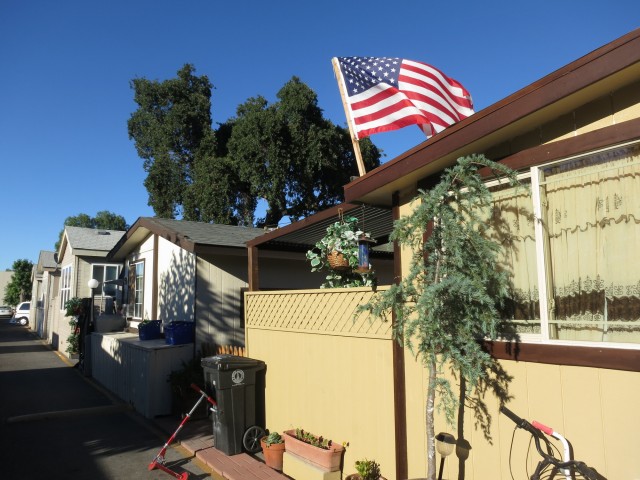
Low-income residents of Palo Alto’s only mobile home park are rallying tonight with some of their better-off neighbors to keep open this rare source of affordable housing in the city. The owners of the Buena Vista Mobile Home Park want to sell the 4.5-acre parcel to developers who plan to build luxury housing.
Most of the Buena Vista Mobile Home Park residents are Latino and low income. If they have to move, it’s unlikely they could afford to stay in Palo Alto. They pay about $700 to rent a space in the development in a city where the median home price is roughly $2 million.
The mobile home park is surrounded by single-family homes, and many neighbors say they don’t want to see the residents leave.
“It’s horrible, losing 400 neighbors,” says Winter Dellenbach who organized tonight’s rally and the group Friends of Buena Vista. “They are a big part of economic and ethnic diversity, which adds to the richness in the city. There’s more than one way to be rich — it’s not all counted in shares.”
The Friends of Buena Vista has the support of 10 churches and synagogues, the League of Women Voters, the Palo Alto school board and many other groups. “We are now a town of millionaires and billionaires. We have such pride. We can’t get enough of ourselves and our ability to invent and engineer — but if we can’t figure out how not to dispossess 400 of us, then I think we’re bankrupt,” Dellenbach says.